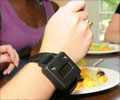A new research has deemed the calorie guidelines famously followed by several Britons as incorrect.
Weight conscious individuals, who religiously stick to the advised 2,000 calories a day limit for women and 2,500 for men, could be depriving themselves of food unnecessarily, the study suggests.In a major review of the official calorie advice, researchers found that these amounts could be raised by as much as 16 per cent from the guidelines developed in 1991.
And this is because nutrition experts had under-estimated physical activity levels in the UK and set advice on energy intake too low.
A 16 per cent increase would boost an adult's daily limit by as much as 400 calories - equal to eating a regular cheeseburger or two packets of ready-salted crisps, according to food industry bible The Grocer.
But increasing the daily calorie guidelines would pose problems for nutrition experts, desperately trying to reverse the obesity epidemic.
The current calorie guidelines are the basis for a raft of UK food and drink labeling schemes and any change to calorie guidelines would potentially require the food industry to overhaul its packaging.
Advertisement
Nutrition experts have warned that the potential change does not give consumers the green light to eat even more high-calorie food and obesity rates alone in the UK mean adults do not need to consume more calories.
Advertisement
The independent Scientific Advisory Committee on Nutrition, reviewed average daily calorie advice, developed in 1991, at the request of The Food Standards Agency and the Department of Health.
Its draft report includes guidelines or "estimated average requirements" based on improved understanding of physical activity levels."
"For teenage boys from 15, girls from 11, and for all adults, estimate average requirement values are increased by up to 16 per cent," The Daily Express quoted SACN as saying.
Source-ANI
TAN













